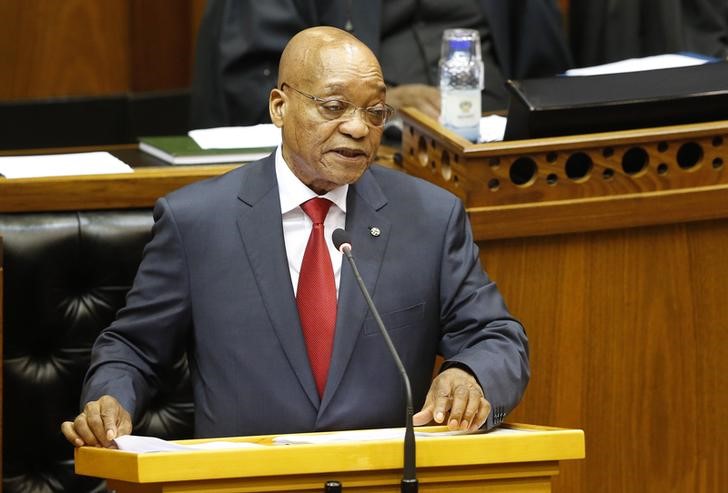By Dinky Mkhize
JOHANNESBURG (Reuters) - South African police fired rubber bullets and tear gas on Thursday to disperse a crowd of anti-immigrant protesters in an eastern suburb of Johannesburg, the country's biggest commercial city, a Reuters witness said.
Around 200 protesters, shouting that they wanted immigrants to leave, had pelted passing vehicles and the police with rocks, triggering the show of force.
At least four people have been killed in a wave of anti-immigrant violence that started two weeks ago in Durban, a key port on South Africa's Indian Ocean coast.
The violence flared up days after Zulu King Goodwill Zwelithini said in remarks reported by local media that foreigners should leave South Africa, although he has since said his comments were misinterpreted.
Johannesburg was the epicentre of xenophobic attacks in 2008 that killed more than 60 people as locals vented frustrations over various issues, particularly a lack of jobs in Africa's most advanced economy.
Addressing parliament in Cape Town on Thursday, President Jacob Zuma reiterated his condemnation of the violence calling it a "violation" of South Africa's values.
"No amount of frustration or anger can ever justify the attacks on foreign nationals and the looting of their shops. We condemn the violence in the strongest possible terms. The attacks violate all the values that South Africa embodies."
Zuma also said the government was taking steps to secure its porous borders and was making progress with the establishment of a Border Management Agency, which was announced last year and is scheduled to be up and running in 2016.
South Africa has erected safe camps in the coastal city of Durban for fleeing immigrants whose shops were looted and burnt.
Hundreds of people took part in a peace march in Durban's city centre on Thursday but only a few blocks away, fresh skirmishes broke out between foreign nationals, locals and police.
South Africa, with a population of about 50 million, is home to an estimated 5 million immigrants, from African countries such as Somalia, Ethiopia, Zimbabwe and Malawi, and from further afield, including Pakistan and China. Many own shops or sell wares as informal hawkers on street corners or in markets.

High unemployment, officially around 25 percent although economists say in reality it is much higher, widespread poverty and glaring income disparities have been blamed for periodic outbreaks of anti-immigrant violence.
(Addtional reporting by Rogan Ward in Durban; Writing by Ed Stoddard; Editing by Catherine Evans)